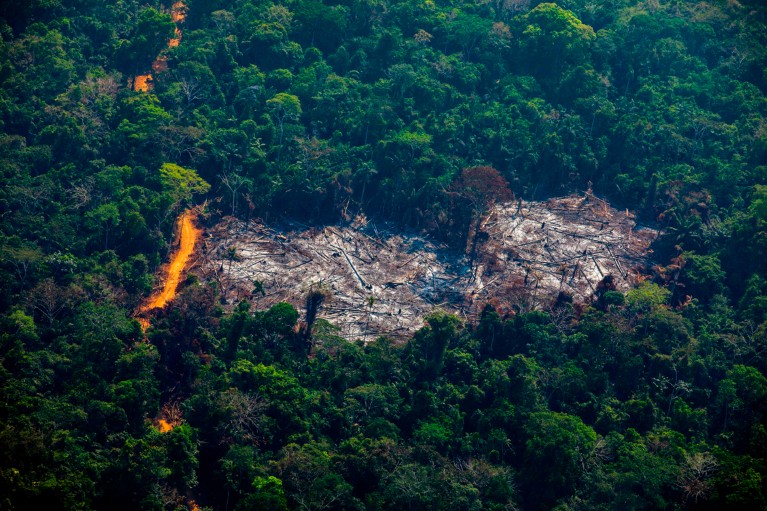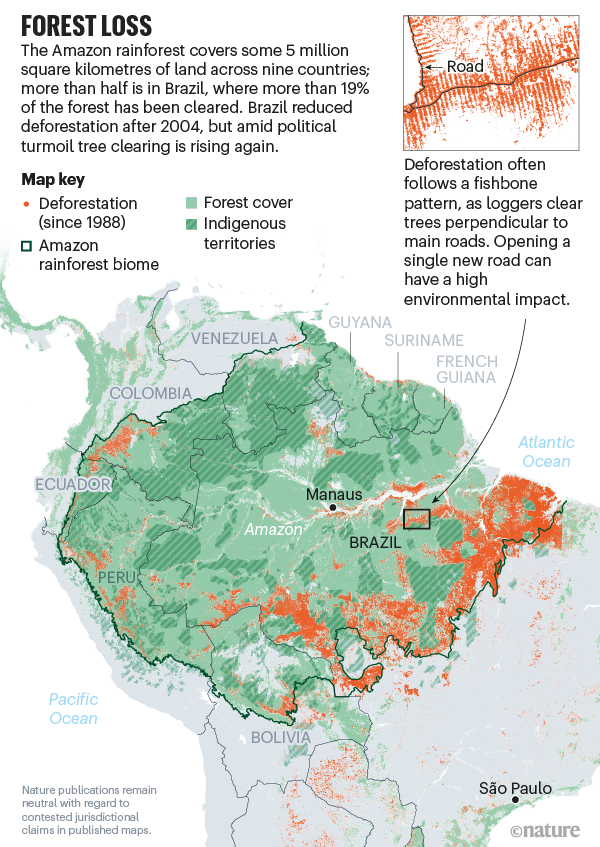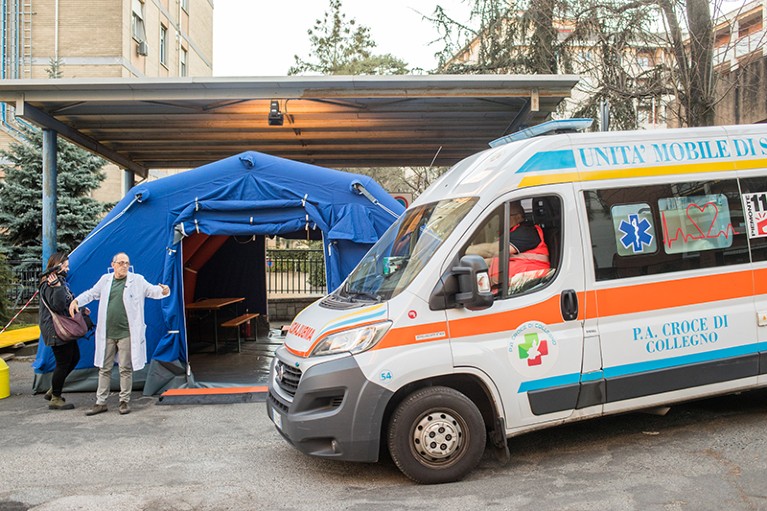Hello Nature readers, would you like to get this Briefing in your inbox free every day? Sign up here

Deforestation in Altamira, Pará state, Brazil.Credit: Joao Laet/AFP via Getty
Averting the Amazon’s point of no return
Climate change, deforestation and fires could cause the world’s largest rainforest to hit a tipping point that could turn much of it into dry scrubland. There would be an impact on biodiversity, livelihoods, carbon emissions and weather patterns. Scientists are desperately exploring just how big the effects might be, when the tipping point could occur — and what must be done to stop it.

Sources: TerraBrasilis (Brazil data 1988–2007); RAISG (other countries data and Indigenous territories/Amazonia borders); Hansen/UMD/Google/USGS/NASA (tree-loss data 2000–18: https://go.nature.com/39CE2FC); ESA Land Cover CCI Product (forest cover).
Pauling’s chemistry rules ‘more like guidelines’
Nobel laureate Linus Pauling’s ‘rules’ that describe the preferred crystal structures adopted by ionic compounds are more like loose guidelines. Chemists tested the five rules against 5,000 oxide structures and found that just 13% satisfied four of the five rules. “These rules, despite being taught in every chemistry textbook, have a much lower predictive power than one would think,” says chemist Geoffroy Hautier.
Features & opinion
How to write a top-notch paper: peer review
In this four-part podcast series about writing a paper, scientists share the highs and lows of getting published for the first time, and what the experience taught them. In the second episode, four researchers and a manuscript editor explain the best way to respond when your paper is rejected or receives peer-review comments that you disagree with.
Butterflies offer lessons in resilience
Environmental researchers Sheila Colla, Dana Prieto and Lisa Myers touch on art, history and science as they explore what pollinator declines have to do with a wave of protests that has swept across Canada. Demonstrators stand in solidarity with Wet'suwet'en hereditary chiefs, who object to a proposed natural-gas pipeline project in their traditional territory.

